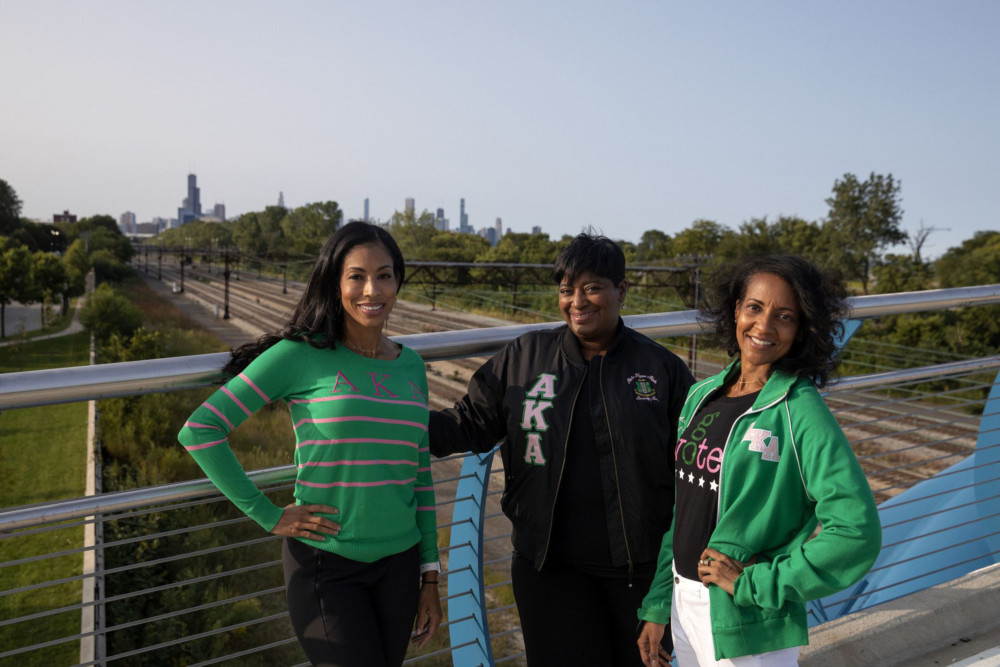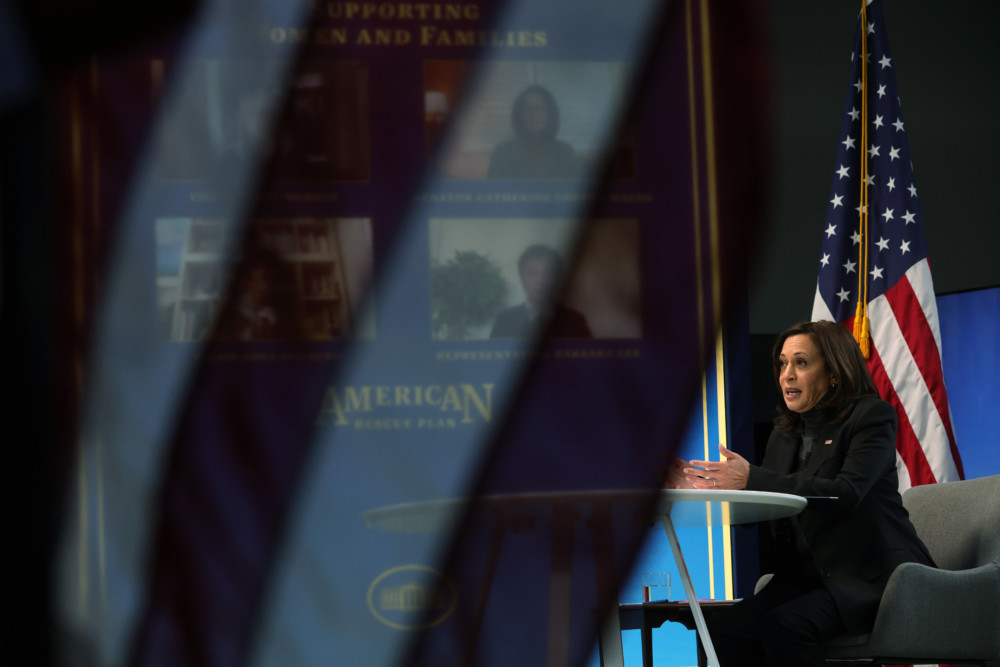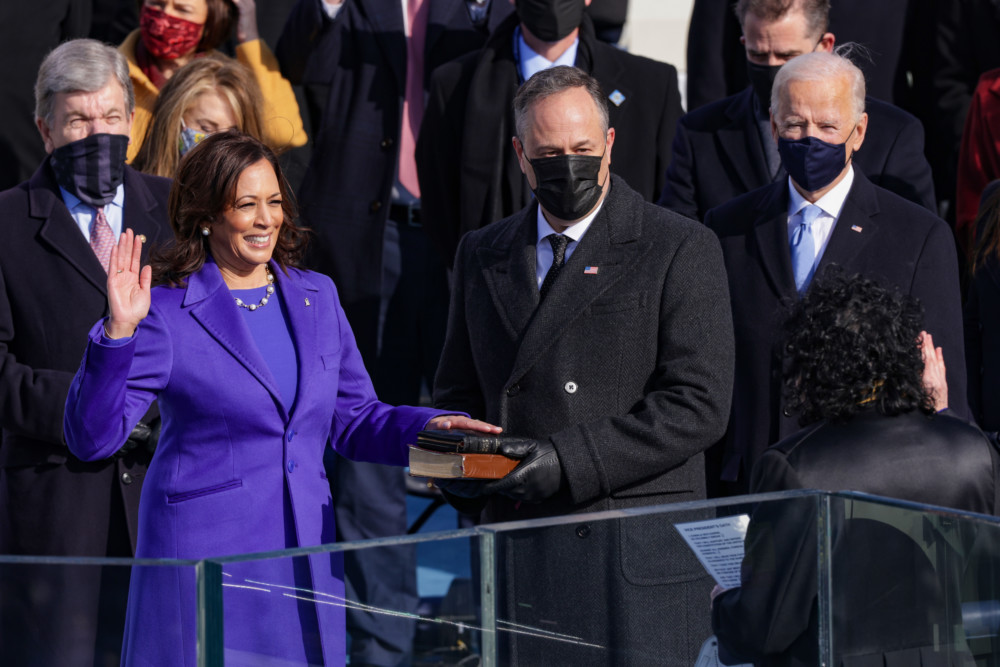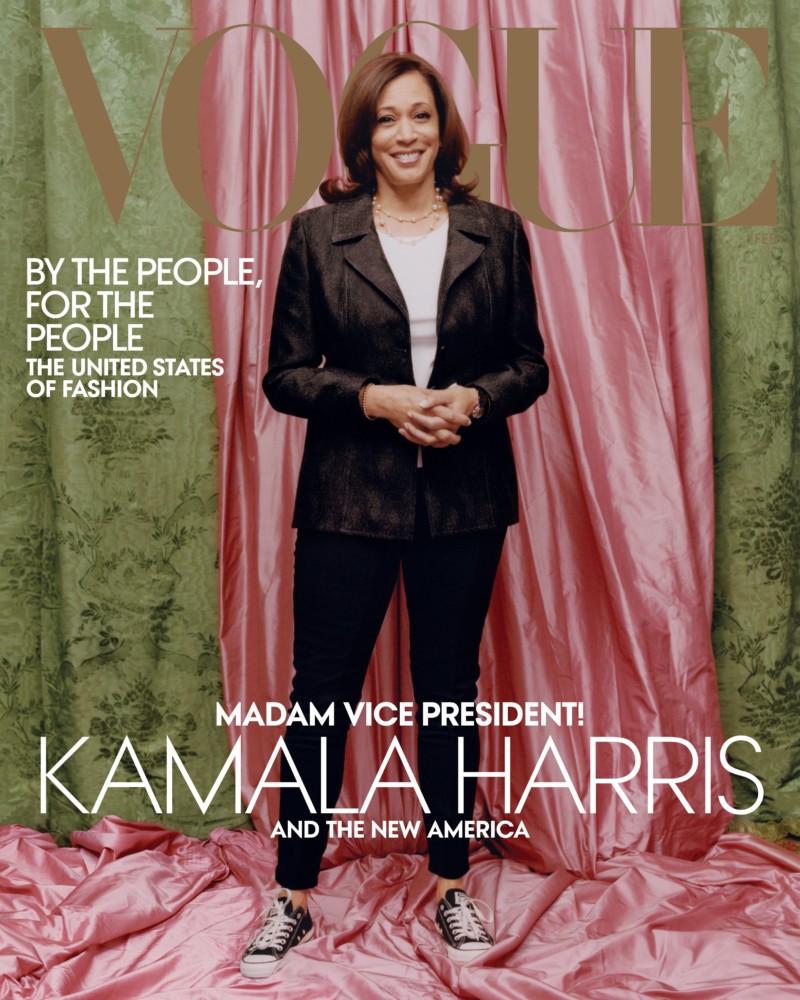By Heidi Stevens
Chicago Tribune
WWR Article Summary (tl;dr) Alpha Kappa Alpha is the nation’s oldest Black sorority. It was founded in 1908 at Howard University. Kamala Harris pledged as an undergrad at Howard and has called the sorority her “secret weapon.”
Chicago
Kia Sutherland’s daughter, Marlowe, 12, has already chosen her sorority.
“She’s known she’s going to be an AKA since she could walk,” said Sutherland, who works in medical sales and lives in Chicago’s Oakland neighborhood. “It’s funny because I have to say, ‘Whoa, there.’ She thinks of it as ‘we,’ and I’m like, ‘It’s not we yet. But if you’re so lucky, one day it will be.’ She feels that sense of pride because she’s been surrounded by Alpha Kappa Alpha her whole life, which is very endearing to me.”
Sutherland pledged Alpha Kappa Alpha as an undergraduate at Hampton University, where she earned her bachelor’s degree in 1999. The sorority models a set of values, kinship, community, commitment to service, that she and her husband, Chris Sutherland, want their son and daughter to soak up and embody. And Marlowe’s already all in.
“It gives her a goal and shows her you really can do anything,” Sutherland said. “The more examples of greatness she sees, not just reading about it in the abstract and projecting herself into that role, but actually seeing it _ the greater likelihood that she can emulate that.”
The nation’s oldest Black sorority, Alpha Kappa Alpha was founded in 1908 at Howard University. It counts among its members civil rights leader Coretta Scott King, astronaut Mae Jemison, authors Maya Angelou and Toni Morrison and, in case you haven’t heard, vice presidential candidate Kamala Harris.
But you’ve probably heard. From the stage at the Democratic National Convention last month, Harris shouted out her AKA sorors: “Family is my beloved Alpha Kappa Alpha, our Divine 9 and my HBCU brothers and sisters.”
(The Divine 9 refers to the nine historically Black fraternities and sororities; HBCU stands for Historically Black Colleges and Universities.)
Harris, who pledged as an undergrad at Howard, has called the sorority her “secret weapon.” Democratic Party fundraisers have reported an eye-popping number of donations in the amount of $19.08, a nod to AKA’s founding year. Biden/Harris lawn signs that say “Kamala is my sorority sister” dot college campuses.
“It’s a sisterly love that goes above and beyond our college years,” said AKA member Denise Dudley, a New Jersey-based health care administrator. “It doesn’t matter when you joined or where you pledged. It’s an automatic connection.”
I asked a group of AKAs from Chicago, home of the the sorority’s national headquarters, and other cities what Harris’ historic nomination means to her fellow sorors. Sharing a deeply rooted tradition with the first Black female vice presidential candidate, they said, has them celebrating both the moment and the potential.
“One of the things I love about Kamala’s nomination is she talks about being an AKA,” said AKA soror Nicole Collier, a public affairs director in Alexandria, Virginia. “It’s really impactful that she went to an HBCU. She’s obviously a brilliant woman, and she’s kind of educating the whole country about the sisterhood and what we’re really capable of.
“We call that Black excellence,” Collier continued. “And it’s everywhere.”
Marla Blair, an AKA member and corporate attorney in Chicago, said watching Harris’ rise instills an extra layer of pride in her own success.
Blair and Collier both attended Hampton University, an HBCU in Hampton, Virginia.
“Knowing she is as qualified, if not more, as any other person in the race brings a sense of pride about HBCUs and validates our path,” Blair said. “I know I, for one, used to always get questions, ‘What is an HBCU about?’ ‘Why did you go there? That’s not the real world.’ At the end of the day, I’m a corporate attorney the same as any of my white colleagues. Our paths were different, but that doesn’t mean mine was any less engaging or fulfilling.”
Blair’s mother and several of her aunts and cousins also pledged AKA. She said it’s not uncommon for membership to span several generations.
“My grandmother would be going crazy at this moment,” Sutherland said. She was also an AKA, but she died before seeing Harris’ nomination. “I know all of our ancestors are doing a happy dance right now somewhere.”
The sorority, which has about 300,000 members and 1,018 chapters, avoids endorsing specific candidates, given its 501(c)3 nonprofit status. But it has a long history of get-out-the-vote efforts, including holding registration drives, educating the public about candidates and their platforms and driving voters to and from polling places.
“We’ll be doing everything we can, making sure our older sorors can get to the polls,” said AKA Kisa Crosse, a family medicine physician in Columbia, Maryland. “But that’s not necessarily just this year because of Kamala. That’s an ongoing pillar.”
“Our founders created Alpha Kappa Alpha on a foundation of sisterhood and service,” said Susan Ellis, a marketing director in Chicago. “It’s the fabric of the sorority.”
Ellis’ mother and grandmother also pledged AKA. She’s elated at Harris’ rise, and cautiously optimistic about the months ahead.
“It’s going be a fight,” said Ellis, who graduated from Spelman College. “I think we’re all ready to pop champagne on election night, but I think, honestly, it’s going to be a full, knock-down, drag-out fight.”
And if Harris and Joe Biden win the White House, they’ll face a daunting set of challenges, recovering from a pandemic that wiped out hundreds of thousands of lives and crippled the economy, for starters.
“From day one, she’s going to have to bring her whole self,” Blair said. “And with Kamala, what we know she knows about diversity and different points of view, we can be really confident she will bring a perspective that is inclusive and is more akin to, I think, what most people in the United States are looking for.”
Sutherland and her family will be watching the election results roll in. Probably wearing the sorority’s signature pink and green. Probably checking in with her AKA sisters throughout the night, feeling a sense of shared purpose and history.
“When you were a child, your parents said, ‘You can grow up and be anything you want to be,'” Sutherland said. “We tell our children, ‘You can be anything you want to be.’ But if you’ve never seen it, you’ve never seen it, and then you have this woman and she’s kind of like you, she looks kind of like you, she went to an HBCU like you and she pledged your sorority and she’s elevated to this level? It just has a special meaning.”
“It’s a sense of validation,” said Crosse. “Since we were little girls we were told we can do whatever we want. But you grow up and become a professional and you may not get the chance to see a woman who looks like you and went on the same path as you. To get this chance is just amazing. We’re all cheering for her on the sidelines.”
___
Distributed by Tribune Content Agency, LLC.

















































































































































































































































































































































































